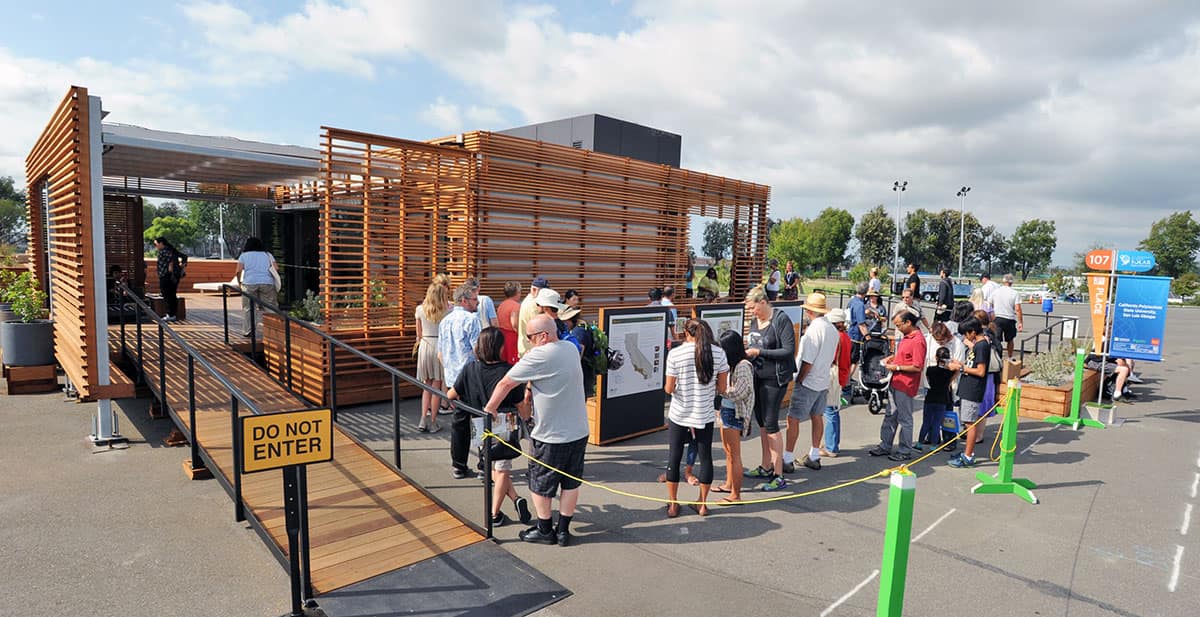Embry-Riddle, Daytona State College Partner to Compete in U.S. Dept of Energy’s Solar Decathlon 2017

A group of Embry-Riddle Aeronautical University and Daytona State College (DSC) students are among just 16 collegiate teams worldwide selected to participate in the U.S. Department of Energy’s prestigious Solar Decathlon 2017 competition. The contest challenges students to design and build solar-powered houses that are affordable, innovative and highly energy-efficient.
“The Solar Decathlon puts students’ classroom skills to the test in a real-life project that exemplifies teamwork across the disciplines of science, engineering, green technology and mathematics,” said Embry-Riddle Interim President Dr. John R. Watret. “Our partnership with Daytona State College combines our unique strengths and provides our students hands-on experience that will help prepare them to be future leaders in the nation's clean-energy workforce.”
“This is a great opportunity for our students from both schools to showcase their talents and pool the knowledge they’ve gained in their studies to do well in this competition,” said DSC President Dr. Tom LoBasso. “It’s a testament to the great things that can happen when our institutions work in partnership to create a collaborative learning experience for students.”
The students and faculty advisors, who compose Team Daytona Beach, met for the first time last week at DSC’s Advanced Technology College to review preliminary drawings of several house-design options. The floor plans were created by DSC students majoring in architectural and building technology and interior design, in collaboration with Embry-Riddle mechanical and civil engineering students.
“Solar Decathlon is among the largest, most complex and most prestigious collegiate competitions in the world,” said Dr. Charles Reinholtz, professor and chair of Embry-Riddle’s Mechanical Engineering Department in Daytona Beach. “Our selection to participate places us among an elite group of top-ranked universities in the United States and abroad. It also validates the quality and reputation of the partner institutions and the faculty, students and corporate sponsors supporting this effort.”
“We’re so excited to work with Embry-Riddle's engineering team in creating this sustainable home,” said Bethany Creamer, assistant chair of DSC's School of Building and Architectural Technology. “It’s a wonderful opportunity for our students to actually implement what they learn in the classroom.”
The preliminary student drawings feature open floor plans with cross ventilation throughout, strategic window placement to draw in natural light and reduce energy consumption, nano-door technology and other features designed for aging in place, sustainability and compliance with the Americans with Disabilities Act.
Once final renderings are completed, the team will work together on a nearly two-year endeavor to fully design, construct and test the house before shipping and reassembling it at the Solar Decathlon 2017 site, which will be determined sometime before mid-2017. The teams will be judged on criteria that include architecture, market appeal, engineering, affordability, and energy balance as they gain hands-on experience in clean-energy design.
For the first time since the competition’s inception in 2000, Solar Decathlon 2017 teams will be competing for $2 million in prize money to be divided among the highest-placing teams.

 James Roddey
James Roddey